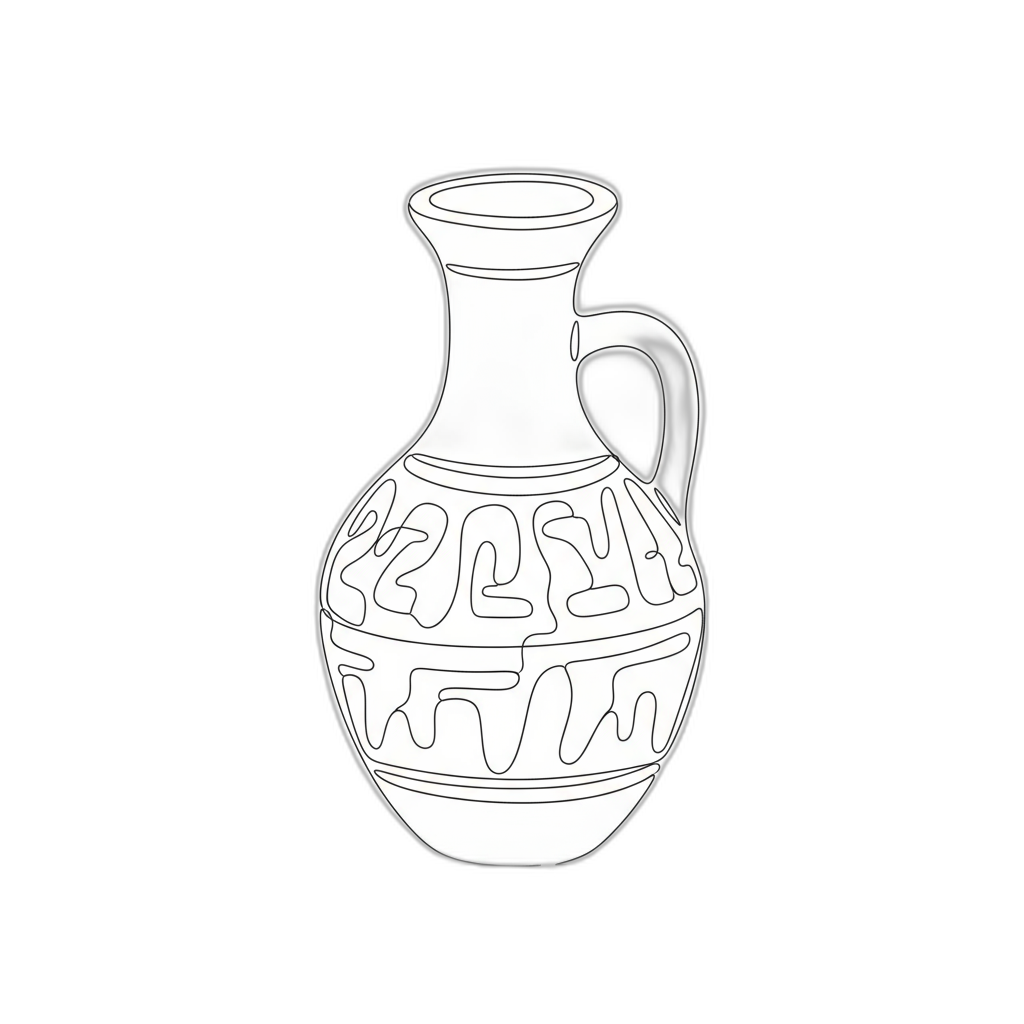






5-Star Service, Trusted & Loved by Hundreds
Your Appraiser Search Ends Here
Your Appraiser Search Ends Here
.avif)

Nationwide Coverage – Appraisals Anywhere in the US

Get it done Onsite or Online

Any Asset, Covered

Defensible for Any Purpose
Frequently Asked
Questions
No Frequently Asked Questions Found.
At its essence, investment represents a forward-looking financial strategy where individuals and organizations commit capital to assets that have the potential to appreciate in value or generate ongoing income. These assets can range from traditional financial instruments like stocks and bonds to more tangible investments such as real estate or business enterprises.
The core motivation behind investment is the expectation of future financial gain. By carefully selecting and managing investment vehicles, individuals can potentially outpace inflation, build long-term wealth, and create additional income streams. This process requires careful analysis, understanding of market dynamics, and a nuanced approach to risk management.
Successful investment strategies typically involve a balanced approach that considers multiple factors, including personal financial goals, risk tolerance, market conditions, and individual economic circumstances. Investors must continuously evaluate their investment portfolio, adapting to changing economic landscapes and personal financial objectives.
While investment inherently carries potential risks, it also offers significant opportunities for financial growth and stability. By understanding the fundamental principles of investment and maintaining a strategic, informed approach, individuals can effectively navigate the complex world of financial opportunities and work towards achieving their long-term financial aspirations.
Investors rely on professional appraisals to establish precise market value, which serves as a foundational element of sound investment strategy. These evaluations offer an unbiased assessment that goes beyond surface-level estimates, incorporating comprehensive market analysis, comparable asset performance, and nuanced economic indicators.
The primary purpose of an investment appraisal extends well beyond simple numerical calculation. It represents a sophisticated tool for risk management, enabling investors to make informed decisions by understanding an asset's true economic potential. By identifying potential overvaluation or undervaluation, investors can strategically position themselves to maximize returns and minimize potential financial vulnerabilities.
Professional appraisals become particularly crucial when seeking financing, as financial institutions demand rigorous valuation methodologies to mitigate lending risks. These assessments provide credible documentation that substantiates an asset's worth, facilitating smoother transactional processes and potentially more favorable lending terms.
Moreover, appraisals play a pivotal role in comprehensive financial planning. They offer critical insights for tax reporting, estate planning, and portfolio optimization. Whether managing a diverse investment portfolio or preparing for asset transition, accurate valuations ensure transparency, compliance, and strategic alignment with broader financial objectives.
The complexity of modern investment landscapes demands a sophisticated approach to asset valuation. Professional appraisals represent an essential investment in financial intelligence, providing investors with the analytical depth required to navigate increasingly nuanced market environments effectively.
An artwork appraisal represents a comprehensive professional evaluation that precisely determines the monetary and historical value of an art piece. This meticulous process involves expert assessment of multiple intricate factors that collectively influence an artwork's market worth and significance.
Professional art appraisers employ a sophisticated methodology that examines critical elements such as the artwork's provenance, authenticity, physical condition, current market dynamics, and the artist's reputation. Each of these components plays a crucial role in establishing an accurate and defensible valuation.
The evaluation goes far beyond a simple price assessment. Appraisers conduct detailed investigations that may include forensic analysis of materials, historical research into the artwork's origins, and careful examination of minute details that can substantiate or challenge the piece's perceived value. They leverage extensive knowledge of artistic styles, market trends, and collector interests to provide a nuanced understanding of an artwork's worth.
Different stakeholders rely on artwork appraisals for diverse purposes, including insurance documentation, estate planning, potential sale transactions, and tax compliance. The appraisal serves as an authoritative document that provides clarity and confidence for collectors, institutions, and potential buyers.
The complexity of art valuation requires a sophisticated approach that balances objective analysis with deep understanding of artistic and market contexts. A comprehensive appraisal not only quantifies monetary value but also captures the intrinsic cultural and historical significance of the artwork.
Online artwork appraisals have become increasingly sophisticated, offering art owners a convenient and comprehensive method to determine the value of their pieces. The process typically begins with submitting high-resolution photographs that capture essential details of the artwork. Professional appraisers carefully analyze these images, examining critical aspects such as condition, artistic technique, and distinctive characteristics.
Beyond visual documentation, appraisers collect contextual information through digital communication channels. Owners provide supplemental details about the artwork's provenance, artist background, and historical significance, which help create a more nuanced valuation. This collaborative approach allows for a thorough assessment without the constraints of physical proximity.
Live video consultations have emerged as an innovative component of online art appraisals. Using platforms like Zoom or Google Meet, appraisers can engage directly with clients, rotating artwork, examining specific details, and conducting real-time discussions. This interactive method bridges the gap between digital and in-person assessment, enabling a more dynamic and comprehensive evaluation.
The digital appraisal process offers substantial benefits, including accessibility for individuals in remote locations, flexibility for busy clients, and reduced logistical complexities. Professional appraisers maintain rigorous standards, ensuring that online evaluations are as meticulous and credible as traditional in-person assessments.
Modern technology has transformed artwork appraisals, creating a streamlined, efficient approach that meets the evolving needs of art collectors and owners. By leveraging digital tools and professional expertise, online appraisals provide accurate, comprehensive valuations with unprecedented convenience.
Artwork appraisers are specialized professionals who meticulously assess the value of diverse art forms. Their expertise spans multiple domains, each requiring unique skills and deep knowledge of artistic markets, historical context, and aesthetic evaluation.
Fine art appraisers concentrate on traditional art mediums like paintings, sculptures, and drawings. These experts possess comprehensive understanding of art movements and market dynamics, often developing profound specialization in specific periods such as Impressionism or Contemporary art.
Decorative art appraisers evaluate functional artistic items including furniture, ceramics, glassware, and textiles. Their assessments consider craftsmanship, material quality, historical significance, and provenance, making them invaluable to collectors and antique dealers seeking precise valuations.
Digital art appraisers represent an emerging professional category addressing the rapidly evolving technological art landscape. They specialize in evaluating digital creations, graphic designs, digital paintings, and emerging formats like NFTs, reflecting the dynamic nature of contemporary artistic expression.
Antique appraisers focus on artworks exceeding 100 years in age, conducting thorough examinations that extend beyond aesthetic value. They scrutinize historical importance, authenticity, and originality, distinguishing genuine historical pieces from reproductions and potential forgeries.
Specialty appraisers develop expertise in distinct artistic niches, concentrating on specific artists, regional styles, or unique media such as photography or limited edition prints. Their targeted knowledge enables nuanced, precise valuations within specialized artistic domains.
Institutional appraisers employed by museums, galleries, and cultural organizations perform critical valuation services for collections, exhibitions, and acquisitions. Operating under rigorous ethical standards, they provide essential assessments for insurance, donation, estate planning, and cultural preservation purposes.
Artworks transcend mere visual appeal, representing significant financial and emotional investments. Professional appraisals provide critical insights that extend far beyond simple price determination, serving multiple strategic purposes for art owners.
Insurance protection stands as a primary motivation for artwork appraisals. Without accurate documentation, collectors risk inadequate compensation during loss, theft, or damage scenarios. Precise valuations enable insurance companies to establish appropriate coverage, ensuring financial security for valuable pieces.
Estate planning represents another crucial context for art appraisals. When transferring assets between generations, comprehensive valuations help establish fair market values, potentially mitigating potential tax complications and familial disputes. Executors and heirs gain clarity about the financial landscape of inherited artwork collections.
Charitable donations also benefit from professional appraisals. For artwork valued over specific thresholds, formal assessments become essential for claiming tax deductions. These documentations provide nonprofits with transparent understanding of donated asset values while offering potential tax advantages to donors.
Preparing for potential sales requires nuanced market understanding. Appraisals illuminate current market trends, helping owners set competitive pricing strategies. Whether considering auction placement or private sale, comprehensive evaluations empower informed decision-making.
Investment portfolios increasingly recognize art as a valuable asset class. Professional appraisals help collectors assess artwork's financial potential, tracking appreciation and understanding long-term value trajectories. These insights support sophisticated wealth management approaches.
Authenticity verification represents an often-overlooked yet critical appraisal benefit. Reputable assessments not only determine monetary value but also confirm artwork provenance, protecting collectors from potential fraud and enhancing piece legitimacy.
Ultimately, artwork appraisals represent more than financial transactions—they are comprehensive explorations of cultural, historical, and monetary significance. By bridging emotional attachment and strategic financial planning, professional evaluations offer collectors comprehensive perspectives on their artistic investments.
Why Invest in Art? Understanding Artwork Valuation
Art transcends aesthetic expression, emerging as a sophisticated investment vehicle for discerning investors. Strategic artwork investments can generate substantial financial returns when approached with comprehensive market understanding and expert knowledge.
Key Factors Influencing Artwork Valuation
- Artist Reputation: Established artists typically command higher prices due to proven market credibility
- Rarity: Limited edition or unique pieces often appreciate more significantly
- Provenance: Documented ownership history can dramatically enhance artwork value
- Condition: Pristine artwork maintains superior investment potential
- Historical Significance: Pieces representing critical cultural moments carry enhanced value
Understanding Art Market Dynamics
Art market valuation involves complex, interconnected factors:
- Economic conditions impact buyer interest and pricing
- Auction results provide critical market insights
- Critical exhibitions influence artist and artwork perception
- Global collector trends shape investment opportunities
Professional Appraisal: A Critical Investment Strategy
Professional appraisers play a pivotal role in artwork investment by:
- Conducting comprehensive market value assessments
- Analyzing current sales data and market trends
- Providing objective, expert evaluations
- Supporting insurance and tax considerations
Investment Benefits Beyond Financial Returns
Art investments offer multifaceted advantages:
- Portfolio diversification
- Cultural engagement
- Potential long-term appreciation
- Personal aesthetic enjoyment
Success in art investment demands meticulous research, expert guidance, and a nuanced understanding of market complexities. By approaching artwork acquisition strategically, investors can transform cultural appreciation into a sophisticated financial opportunity.
Decoding the Value: Key Factors That Impact Artwork Pricing
When it comes to investing in art, understanding the factors that influence artwork pricing is crucial for making informed decisions. While aesthetic appeal plays a role, the valuation of art is a complex interplay of multiple elements.
Critical Factors Impacting Artwork Value
Artist Reputation
The artist's recognition and career trajectory significantly impact the price of their work. Key considerations include:
- Career trajectory and professional milestones
- Critical acclaim and industry recognition
- Consistency in artistic output
- Historical market performance
Provenance and Historical Significance
An artwork's documented history can dramatically enhance its value. Important provenance elements include:
- Previous ownership by notable collectors
- Exhibition history in prestigious galleries
- Documentation of artwork's origin and authenticity
- Inclusion in significant museum collections
Technical Characteristics
The physical attributes of an artwork play a crucial role in determining its market value:
- Medium complexity and rarity
- Artwork dimensions
- Technical execution and craftsmanship
- Unique artistic techniques
Market Dynamics
Art valuation is intrinsically linked to broader market trends:
- Contemporary artistic movements
- Collector preferences
- Global economic conditions
- Emerging artistic styles
Physical Condition
The artwork's preservation state is paramount to maintaining its value:
- Overall physical integrity
- Evidence of professional conservation
- Minimal signs of deterioration
- Quality of previous restorations
Emotional and Aesthetic Value
Beyond quantifiable metrics, emotional resonance can significantly influence an artwork's perceived value:
- Personal connection and subjective appreciation
- Cultural and historical context
- Unique narrative or artistic statement
- Potential for emotional impact
By comprehensively evaluating these interconnected factors, potential art investors can develop a nuanced understanding of artwork valuation, enabling more strategic and informed investment decisions.
Are You Prepared for a Professional Artwork Appraisal?
Preparing for a Professional Art Valuation: A Strategic Approach
Navigating the art market requires strategic preparation and comprehensive understanding. A professional artwork appraisal offers critical insights that transcend visual appreciation, providing investors and collectors with valuable investment intelligence.
Key Preparation Strategies
- Comprehensive Documentation
- Compile all artwork-related documents
- Collect provenance records
- Gather previous appraisal reports
- Retain original purchase receipts
- Include any restoration documentation
- In-Depth Artist Research
- Investigate artist's professional background
- Analyze career trajectory
- Review historical market performance
- Understand critical reception and reputation
- Market Intelligence
- Track current art market trends
- Monitor genre-specific valuations
- Understand cyclical market fluctuations
- Recognize potential value appreciation factors
- Artwork Condition Assessment
- Conduct honest, objective condition evaluation
- Document any existing damage or wear
- Prepare for professional detailed examination
- Understand how condition impacts valuation
- Appraiser Selection
- Seek specialists with genre-specific expertise
- Verify professional credentials
- Request detailed assessment methodology
- Prioritize experienced, reputable professionals
Strategic Insights
Thorough preparation transforms the appraisal process from a simple valuation into a strategic investment analysis. By approaching artwork assessment systematically, collectors and investors gain nuanced understanding of their art's financial potential.
An informed, methodical approach ensures accurate valuation and positions art assets within the broader investment landscape. Knowledge, preparation, and professional expertise are the cornerstones of successful art investment strategies.
Beyond the Canvas: The Critical Role of Expert Appraisers
Artwork appraisal is a sophisticated process that transforms art from a visual asset into a strategic investment opportunity. Unlike casual assessments, professional art appraisal delves deep into the intricate factors that determine an artwork's true market value.
The Expertise Behind Art Valuation
Expert appraisers bring a multifaceted approach to art valuation, combining:
- Advanced academic credentials in art history
- Professional certifications from recognized appraisal organizations
- Comprehensive understanding of market dynamics
- Specialized knowledge across diverse art genres and periods
The Comprehensive Appraisal Process
A thorough art appraisal encompasses multiple critical evaluation dimensions:
- Visual Examination
- Analyzing artwork medium and technique
- Assessing physical condition and preservation
- Verifying artistic style and authenticity
- Historical Context
- Researching artist provenance
- Investigating exhibition history
- Understanding cultural and artistic significance
- Market Analysis
- Tracking current art market trends
- Comparing comparable sales
- Evaluating potential future value
Strategic Investment Insights
Professional art appraisals provide investors with crucial strategic advantages, including:
- Accurate insurance valuation
- Informed buying and selling decisions
- Estate planning support
- Tax consideration guidance
The Value of Professional Expertise
In a complex and often unpredictable art market, professional appraisers offer more than a price tag—they provide a comprehensive understanding of an artwork's intrinsic and market value, enabling collectors and investors to make confident, informed decisions.
Navigating Art Market Trends: What Investors Need to Know
Key Considerations for Art Market Investment
Navigating the art market requires a nuanced understanding of multiple dynamic factors that influence artwork valuation and investment potential. Successful art investors develop a strategic approach that balances market knowledge, trend awareness, and expert insights.
Understanding Market Dynamics
- Market Volatility: Art investments mirror financial markets with significant price fluctuations driven by economic conditions
- Economic Sensitivity: Artwork values can dramatically shift during economic prosperity or downturns
- Comprehensive Market Research: Continuous monitoring of broader economic landscapes is crucial for informed investment decisions
Identifying Investment Opportunities
- Emerging Artist Potential: Early identification of talented artists can yield substantial long-term returns
- Strategic Observation Points:
- Art fairs
- Gallery exhibitions
- Professional artist recommendations
Critical Valuation Factors
- Provenance Importance
- Establishes artwork legitimacy
- Demonstrates historical significance
- Directly impacts market value
- Authenticity Verification
- Prevents potential financial losses
- Requires expert appraisal
- Demands comprehensive documentation
Evolving Art Market Trends
Successful investors recognize that artistic markets are dynamic, with rapid shifts in:
- Artistic styles
- Preferred mediums
- Thematic interests
- Emerging art technologies
Strategic Investment Approach
Effective art investment demands a multifaceted strategy that combines:
- Continuous market education
- Professional network engagement
- Adaptable investment perspective
- Risk-managed portfolio development
By maintaining a comprehensive and informed approach, investors can transform art acquisition from a speculative endeavor into a calculated investment strategy.
Legal Insights: Protecting Your Art Investment
When investing in artwork, understanding the legal landscape is crucial to safeguarding your assets. Art investment can be a rewarding pursuit, yet it is often fraught with complexities that require careful navigation. Here are key legal insights that can help protect your art investment.
Key Legal Considerations for Art Investors
1. Establishing Provenance and Clear Title
- Verify the complete ownership history of the artwork
- Collect comprehensive documentation, including:
- Original purchase receipts
- Gallery certificates
- Professional appraisal documents
- Confirm authenticity through multiple reputable sources
- Understand that clear provenance directly impacts artwork value and investment security
2. Formalize Transaction Agreements
- Create detailed written contracts for all art transactions
- Include specific terms such as:
- Sale conditions
- Return policy
- Authenticity warranties
- Ensure all agreements are legally binding and comprehensive
- Prevent potential disputes through clear, precise documentation
3. Specialized Art Insurance Protection
- Standard insurance policies often inadequately cover art investments
- Seek specialized art insurance that provides:
- Comprehensive theft protection
- Damage coverage
- Loss compensation
- Regularly update insurance values based on current market appraisals
- Consider additional storage and transportation coverage
4. Navigate Complex Tax Implications
- Understand potential tax obligations for art investments
- Key tax considerations include:
- Capital gains tax
- Sales tax
- Potential charitable donation benefits
- Consult tax professionals specializing in art transactions
- Develop a strategic approach to tax planning
5. Comprehensive Due Diligence
- Engage professional expertise before significant investments
- Seek guidance from:
- Professional art appraisers
- Legal advisors specializing in art transactions
- Art market experts
- Conduct thorough background research
- Verify artwork authenticity and market value
By implementing these legal insights, investors can significantly enhance the protection and potential of their art investments, mitigating risks and positioning themselves for long-term success.
Avoiding Costly Mistakes in Art Appraisal
When it comes to art appraisal for investment purposes, avoiding costly mistakes is crucial for collectors and investors. Understanding key strategies can help protect and maximize the value of your art investments.
Key Considerations in Art Investment Appraisal
1. The Critical Role of Provenance
- Provenance is the documented history of an artwork's ownership
- A well-documented lineage can significantly increase an artwork's market value
- Always verify and thoroughly research an artwork's complete ownership history
2. Professional Valuation vs. Online Platforms
- Digital platforms provide general market trends but lack nuanced insights
- Online valuations cannot replace expert professional appraisal
- Each artwork is unique, requiring specialized expert evaluation
- Factors such as artist reputation, medium, and current market trends impact true value
3. Artwork Condition Assessment
- Artwork condition is a critical factor in determining market value
- Thorough professional inspections are essential
- Minor restorations can sometimes enhance value
- Poor condition can dramatically reduce an artwork's worth
- Avoid purchasing works without comprehensive condition appraisals
4. Understanding Market Dynamics
- Art markets are inherently volatile
- Values fluctuate based on:
- Economic trends
- Cultural shifts
- Emerging artist recognition
- Continuous market research is crucial for informed investment
By recognizing potential pitfalls and seeking professional guidance, art investors can navigate the complexities of art appraisal, ensuring well-informed and financially strategic investments.
Interpreting Your Artwork Appraisal Report
Navigating an artwork appraisal report requires a strategic understanding of its comprehensive components. Each section provides critical insights that help investors and collectors assess the true value and significance of a piece.
Key Components of an Artwork Appraisal Report
1. Artist Information
The initial section provides detailed context about the artist, including:
- Comprehensive biographical details
- Professional background and achievements
- Notable works and artistic reputation
- Market positioning and historical significance
2. Artwork Description
A precise documentation of the artwork's technical and visual characteristics, covering:
- Complete title and creation date
- Specific medium and technique
- Exact dimensions
- Unique identifying features
- Provenance and ownership history
3. Condition Assessment
A critical evaluation of the artwork's physical state that directly impacts its value, including:
- Comprehensive damage documentation
- Previous restoration details
- Preservation quality
- Potential conservation requirements
4. Comparative Market Analysis
An essential section that contextualizes the artwork within current market dynamics by:
- Referencing recent sales of similar artworks
- Analyzing current market trends
- Comparing price points
- Assessing artist's current market performance
5. Valuation Conclusion
The culminating section that provides multiple value perspectives:
- Fair market value
- Insurance replacement value
- Potential liquidation value
Understanding these detailed components empowers art investors to make informed decisions, balancing financial considerations with artistic appreciation. Each section offers nuanced insights that go beyond mere monetary assessment, providing a holistic view of an artwork's intrinsic and market value.
Essential Resources for Strategic Art Investors
Essential Resources for Strategic Art Investors
Art investment represents a sophisticated approach to portfolio diversification, requiring strategic knowledge and access to critical resources. Strategic investors must equip themselves with comprehensive tools and insights to navigate this complex market effectively.
1. Art Market Intelligence
- Obtain comprehensive art market reports and analytics
- Track price movements and auction results
- Analyze historical valuation trends
- Review forecasts from reputable market research organizations
2. Professional Network Development
- Cultivate relationships with key industry professionals
- Connect with galleries, auction houses, and independent appraisers
- Gain access to exclusive investment opportunities
- Receive expert insights on artwork potential and market dynamics
3. Continuous Learning and Education
- Invest in specialized art investment courses
- Attend workshops on art history and valuation techniques
- Study diverse art movements and cultural contexts
- Develop critical evaluation skills
4. Strategic Event Participation
- Attend international art fairs and conferences
- Network with artists, collectors, and industry experts
- Identify emerging market trends
- Explore potential investment opportunities firsthand
5. Comprehensive Due Diligence
- Verify artwork authenticity and provenance
- Consult legal professionals specializing in art transactions
- Understand ownership rights and documentation requirements
- Mitigate potential legal and financial risks
By strategically leveraging these essential resources, art investors can make informed decisions that balance financial objectives with the intrinsic value of art collection.
View all Locations
BEST-IN-CLASS APPRAISERS, CREDENTIALED BY:
























.svg)










